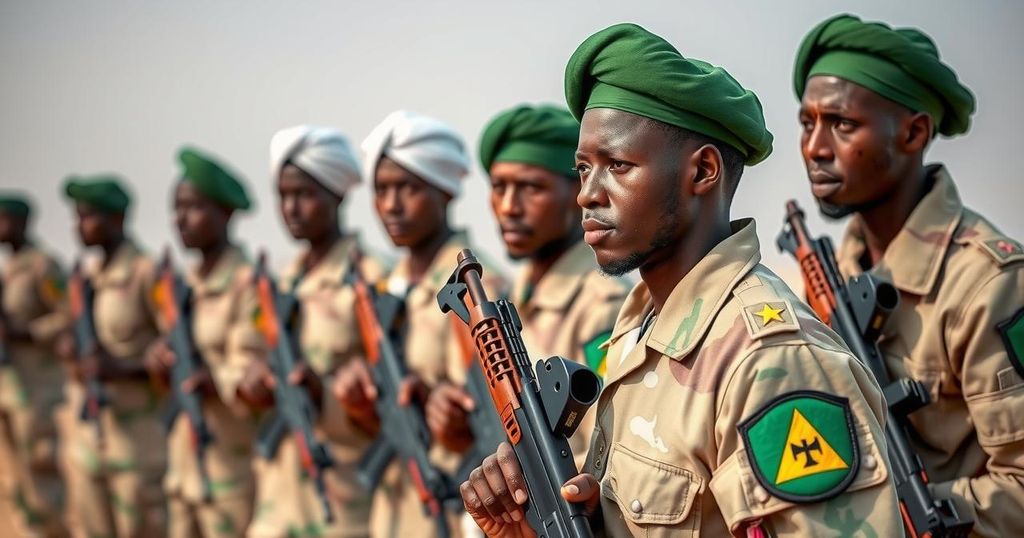UAE Assures US of Halt in Arms Supplies to Sudan Paramilitaries

The United Arab Emirates (UAE) has assured the United States that it will no longer supply arms to paramilitaries in Sudan amid ongoing civil conflict. US lawmakers responded by withdrawing their efforts to block a significant arms deal with the UAE, signaling a hopeful shift towards reducing violence in Sudan. Lawmakers emphasized the importance of monitoring UAE’s compliance with these assurances.
The United Arab Emirates (UAE) has reassured the United States that it has ceased arms transfers to paramilitary forces involved in Sudan’s ongoing civil war. US lawmakers, responding to these assurances, indicated they would abandon their attempts to obstruct a $1.2 billion arms sale to the Gulf nation. Senator Chris Van Hollen disclosed correspondence from the White House outlining the UAE’s commitment regarding the Rapid Support Forces (RSF).
The letter, signed by Brett McGurk, the White House’s Middle East policy coordinator, stated, “the UAE has informed the administration that it is not now transferring any weapons to the RSF and will not do so going forward.” McGurk also indicated that the administration would provide an assessment of these assurances’ credibility and reliability by January 17. Senator Van Hollen articulated his intention to utilize the potential arms sale as leverage to mitigate the escalating violence in Sudan, cautioning that further attempts to block arms supplies would proceed should the UAE fail to uphold its promise.
Representative Sara Jacobs also affirmed her commitment to monitoring the UAE’s adherence to its assurances and noted that the RSF would be significantly weakened without UAE support, thereby making negotiations and a ceasefire more feasible. The UAE has historically denied any involvement in the conflict, despite previous allegations from UN experts regarding arms transfers to the RSF through Chad.
This arms deal originally included advanced weaponry, such as long-range ATACMS missiles, and illustrates the contrasting approach of the Trump administration regarding arms sales compared to that of President Biden, who has sought increased oversight of such transactions since taking office.
The context of this article revolves around the ongoing civil conflict in Sudan, which has led to significant humanitarian crises, characterized by violence and mass displacements. The RSF has been accused of engaging in extensive human rights violations. The UAE’s alleged support for these paramilitary groups has drawn scrutiny both internationally and domestically. The involvement of US lawmakers reflects broader concerns regarding arms sales to nations potentially exacerbating conflicts, particularly in light of the recent engagements of both the Trump and Biden administrations in foreign arms agreements with the UAE.
In summary, the UAE’s commitment to halt arms exports to Sudan’s paramilitary forces marks a pivotal moment in addressing the violence in the region. By securing this promise, US lawmakers hope to enhance the prospects of peace and stability in Sudan, while simultaneously navigating the complexities of international arms negotiations. Continued vigilance will be crucial in ensuring compliance with these assurances to facilitate a resolution to the ongoing conflict.
Original Source: www.barrons.com






